General Surgery For Dogs & Cats
We offer routine surgical procedures for dogs and cats such as desexing, wound flushing, stitches and lump removal.

Trustindex verifies that the original source of the review is Google. Always greeted with a warm welcome, vets and nurses are all so kind and caringTrustindex verifies that the original source of the review is Google. One of the best and caring vets I've been to.Trustindex verifies that the original source of the review is Google. They helped bring a little comfort and kindness during an otherwise heartbreaking time.Trustindex verifies that the original source of the review is Google. These ladies (and Tim!) are the best in the business in my opinion. They were so patient and loving with my boy Marvin, they were helpful and answered any and all questions I had. He was spoilt rotten with cuddles and treats and I can bet he is excited for his next visit already. Thank you to the Moffat Beach Vets team!!Trustindex verifies that the original source of the review is Google. My first visit to your Veterinary Practice where I registered my little dog Georgie Girl. It was a wonderful experience. Dr Belinda who examined Georgie was amazing and suggested a number of things that may help towards Georgie 's wellbeing. I would have no hesitation in recommending Dr Belinda at Moffat Beach Vets to my friends. She was so easy to talk to and Georgie was so relaxed when she was examined, which is normally unusual for her. The Vet Nurse Taylor was also very friendly and helpful. I would definitely let all my friends know about Moffat Beach Vets.Trustindex verifies that the original source of the review is Google. Brilliant and super friendly and helpfulTrustindex verifies that the original source of the review is Google. All staff are welcoming and knowledgeable!! They make it so easier for me to book my pet in around work schedules which I appreciate!! Staff are always happy to see you and conversations are so easy!Trustindex verifies that the original source of the review is Google. My fur baby Bella who is a rescue hates anyone thats breathing an warm red blood running through their veins. I'm not joking. Thanks to the wonderful staff they can not only wash her but clip her nails. I have 3 fur babies an I never have to drag them in there. Powderpuff actually runs in there to greet them. The first 2 months of taking Bella to get groomed they call me to say they can't get her to come out of the cage. I kept taking her there an they finally won her over.Verified by TrustindexTrustindex verified badge is the Universal Symbol of Trust. Only the greatest companies can get the verified badge who has a review score above 4.5, based on customer reviews over the past 12 months. Read more
Supportive Surgical Care For Pets
Your furbaby is in good hands with our vets’ soft tissue surgery expertise and our fully equipped surgical suite. We assess each pet individually and provide the best advice possible for your case.
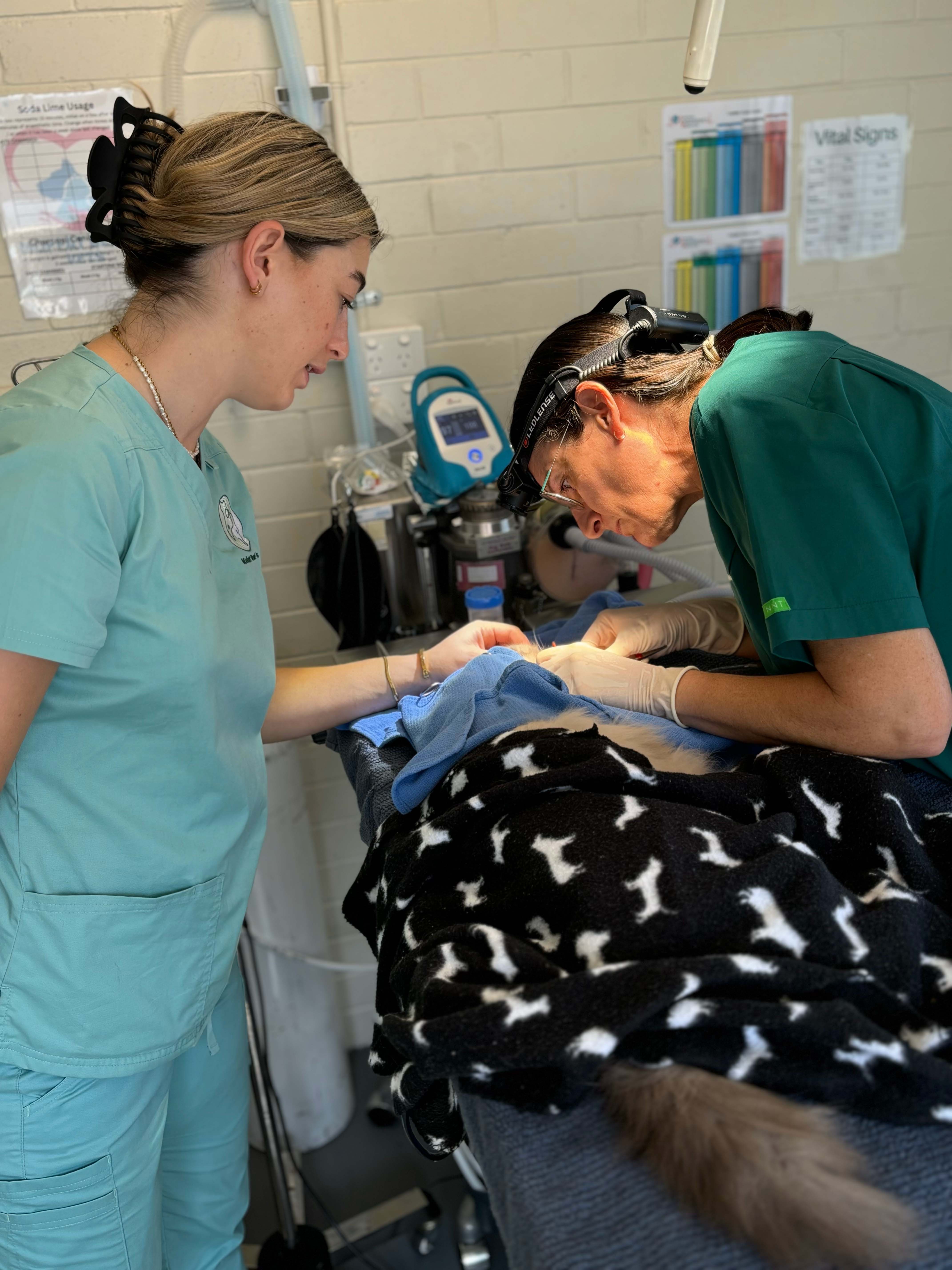
Common Surgeries We Perform

Desexing

Lump or Abscess Removal

Biopsies

Wound Stitch-Ups
Did you know?
Soft tissue surgery encompasses any surgery unrelated to bones.
Soft tissue surgery services available to your dog or cat include:
- Desexing
- Exploratory
- Laparotomies
- Caesareans
- Lump removals
- Biopsies
- Wound stitch-ups
- Removal of intestinal foreign bodies
Removing Lumps On Your Pet
1. Spotting a Lump
If you find a lump or bump on your pet, make an appointment to visit one of our veterinarians to discuss any surgery your pet may require.
2. Lump Biopsy
Some lumps may require a biopsy prior to removal to help understand whether they are cancerous or not.
Although most lumps are not harmful (benign), a minority are more serious. In the case of cancerous (malignant) tumours, early removal and an accurate diagnosis is extremely important to maximise the chances of a good outcome.
This information assists us in planning the surgery accordingly to give your pet the best possible outcome.
3. After Surgery
Caring For Your Pet After Stitches
You won’t be able to explain what stitches are to your dog or cat. To ensure their wound makes a full, clean recovery, follow these post-op tips:
- Restrict your pet’s activity for at least 10-14 days after surgery.
- Prevent your dog or cat from licking the wound with a cone or Elizabethen collar.
- Keep the incision site clean and dry.
- Check for any signs of infection daily.
- Offer antibiotics, pain medication and anti-inflammation medication as your vet prescribes.
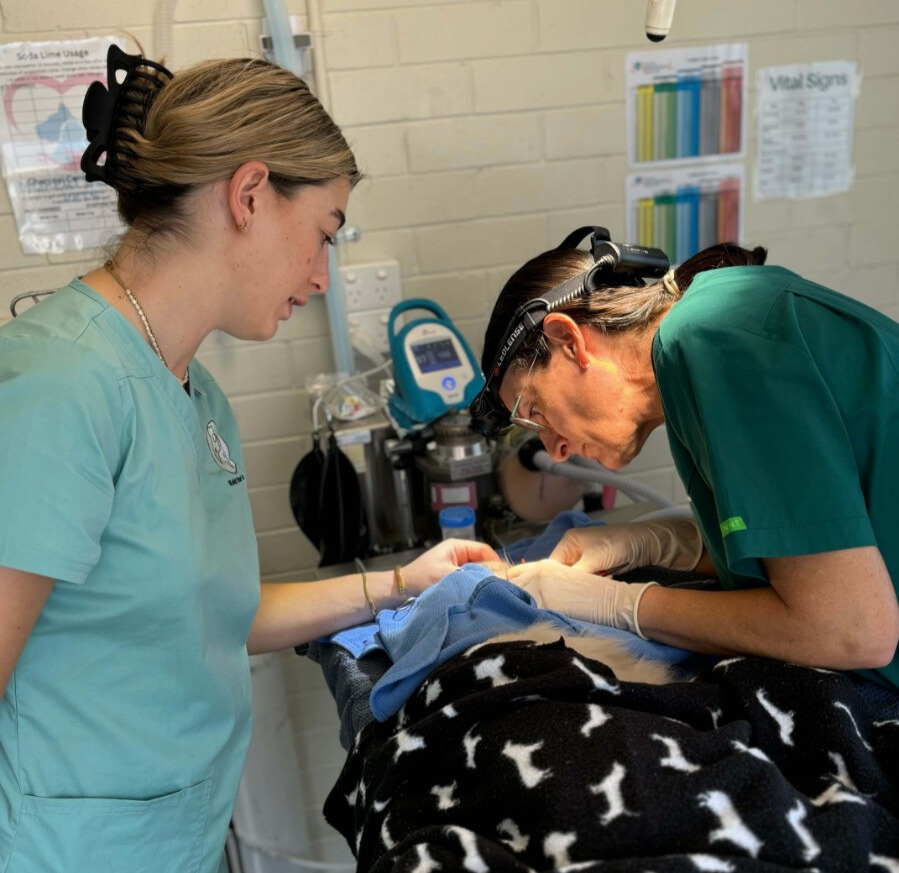
Calm Visits With Our Fear Free Approach
At our vet clinic, your pet will receive sound advice and professional care from our animal specialists.
We help you understand the health care and treatment options available for your feline or canine. This includes calming care options that can be implemented before or after your visit.
Our vets will equip you to make the best health care decisions for your cat or dog.
What to Expect from Our Clinic

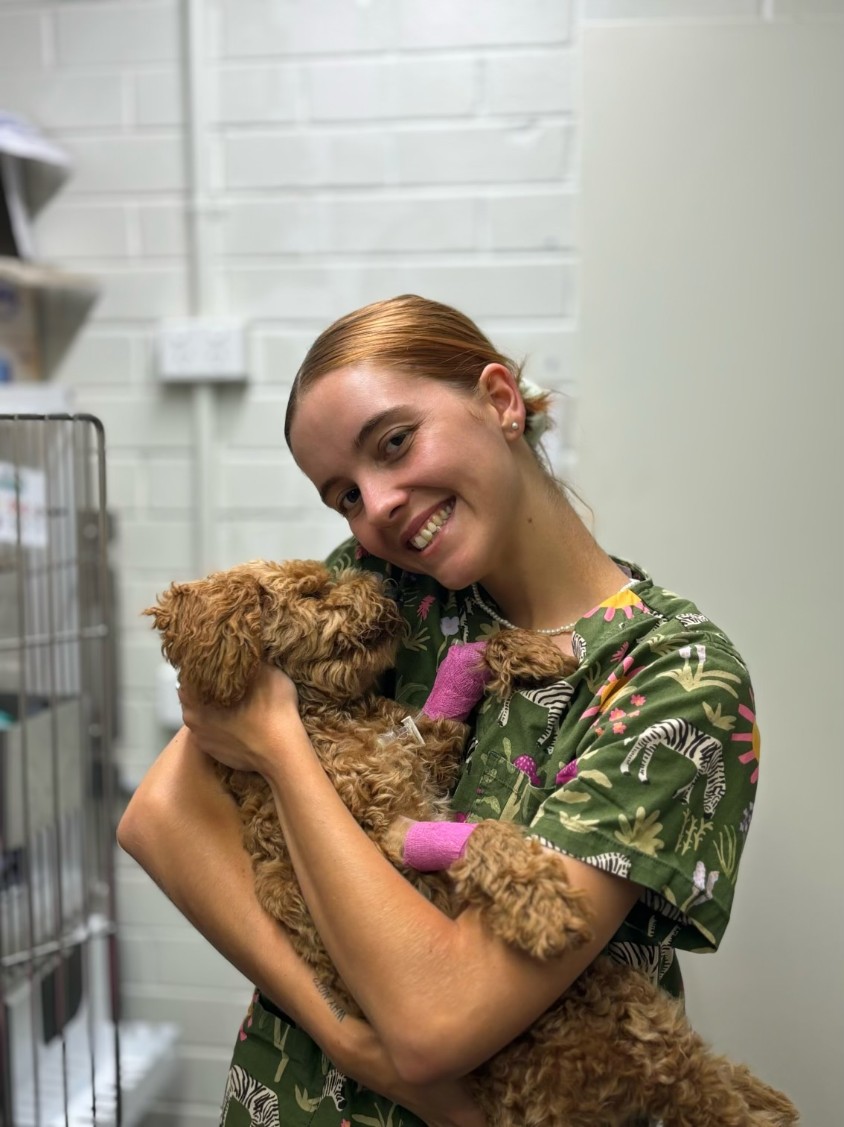
Prompt Service
We work with you and your schedule to get your pet the care they need, when they need it.
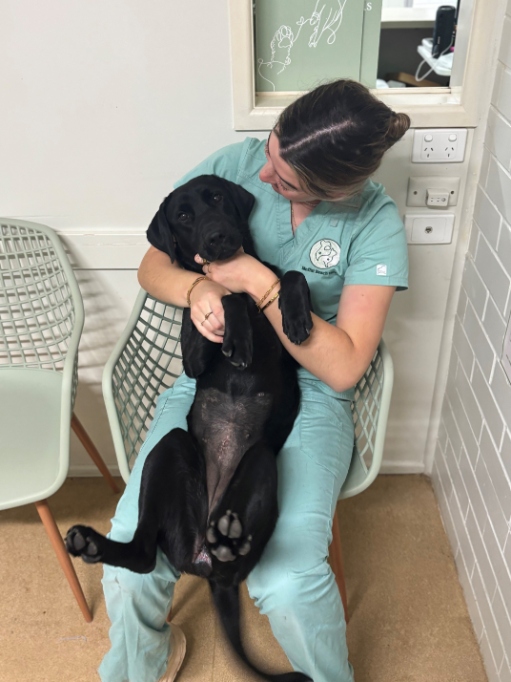
Fear Free Approach
To ensure your pet has an anxiety free visit to our clinic, we offer a range of methods and practices to help keep them feeling calm and safe.
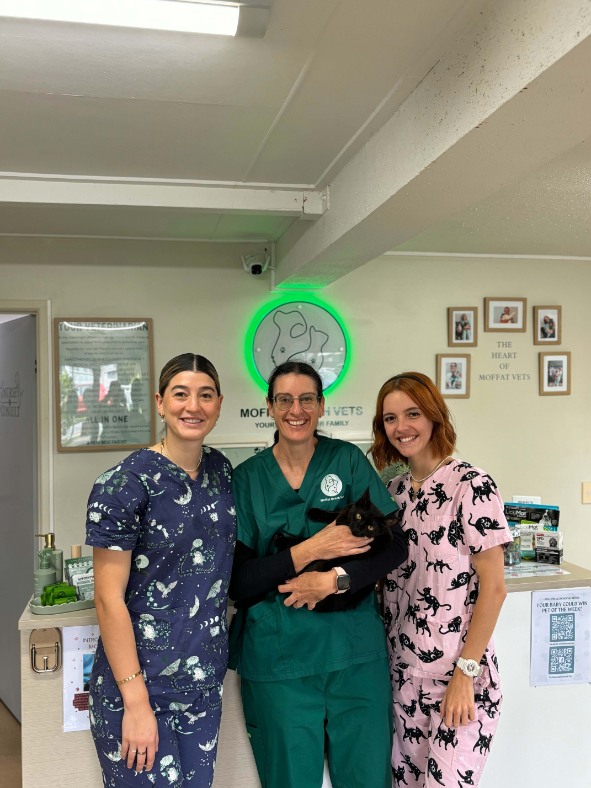
Caring Staff
If your pet has a bad night but you still need to work in the morning, drop them off with us. Our vets will assess and care for them between regularly scheduled appointments.
Desexing Your Pet
If you adopt your cat or dog while they are young, you may chose to get them desexed or sterilised.
This is known as spaying for female animals and castration or neutering for male animals.
Desexing your pet helps reduce the amount of unplanned kittens and puppies in shelters. If you plan to let your pet wander around the yard or neighbourhood unsupervised, desexing is an excellent preventive measure to consider.
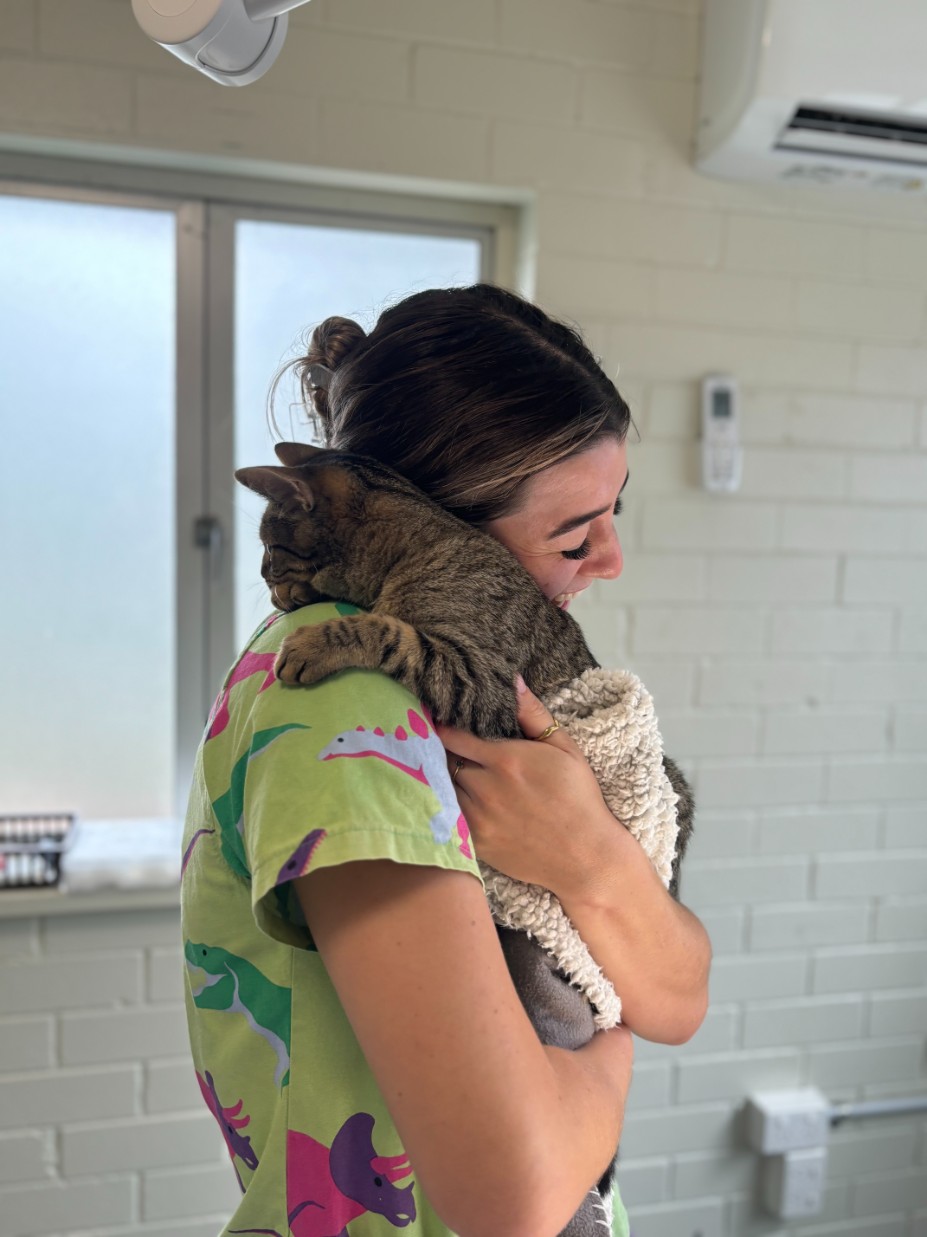
Common Questions About Soft Tissue Surgeries
Everything you need to know about getting your dog or cat the surgery they need to recover. Can’t find an answer? Contact our team.



